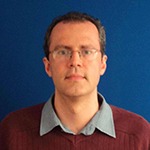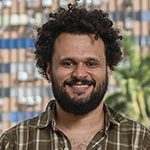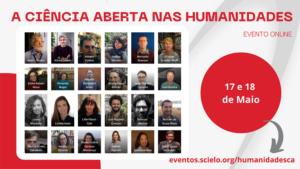By Luiz Augusto Campos e Bernardo Buarque de Hollanda
The scientific world has been undergoing a silent revolution. After centuries based on standards centered on the secrecy of laboratories and the anonymity of scientific assessment, several disciplines are gradually migrating to what we call the Open Science Program (OSP). This involves a series of transparency policies that range from the availability of data used in research to the opening of reviews in the article evaluation process.
However, little is known about the impact of these transformations in the different areas of the Humanities, which bring together from fields such as Philosophy and History to Social and Human Sciences, such as Sociology and Psychology, going through the areas of Applied Social Sciences, such as Administration, and Education. It was with the aim of monitoring this process and its main challenges that the SciELO Program held the event Open Science in the Humanities (site available only in Portuguese) between the 17th and the 18th of May. In total, there were six panels with more than two dozen editors and experts discussing the consequences of the OSP for the area, its potentials, and limits.
The first panel was dedicated to the challenges of OSP in the Humanities. The director of the SciELO program, Abel Packer, and the deputy director of the Brazilian Association of Scientific Editors (Associação Brasileira de Editores Científicos, ABEC), Lia Machado Fialho, presented data on the adherence of the Platform’s journals to open science practices. Despite slow, the incorporation of these practices in the collection is not far from what happens in other areas. Furthermore, there is a whole plurality and creativity in this process, encouraged by the participants of the panel. Finally, Professor Fernanda Beigel (University of Cuyo) highlighted the importance of considering regional and international inequalities in this process of spreading the OSP through the Humanities.
The first day continued with Panel 2, dedicated to the dissemination and visibility of scientific output. The panel had four participants – Natália Padovani (State University of Campinas, UNICAMP), from the journal Cadernos Pagu, Marcus Cueto (Oswaldo Cruz Foundation, FIOCRUZ), from the journal História, Ciências e Saúde Manguinhos, Haroldo Ramanzini (Federal University of Uberlândia, UFU), from the Revista Brasileira de Política Internacional, and Sabine Righetti (UNICAMP), from Agência Bori. All of them explored several challenges involved in scholarly communication, whether the need for structured journals with the support of human resources, or an editorial policy that is concerned with the reach and impact of their publications, to the ability to operate in the interface with social media and with public opinion influencers.
The third and final panel on May 17 addressed the preprint servers, repositories of articles that propose the dissemination of manuscripts even before peer review. Professor Suzana Gomes (Federal University of Minas Gerais, UFMG), editor of the journal Educação em Revista, presented her editorial experience not only of acceptance but also of adoption of preprints as a condition for submitting manuscripts to her journal. Although is in favor of OSP and that his journal has already introduced its guidelines, Prof. Marcelo Bispo (Federal University of Paraíba, UFPB), editor of the Revista de Administração Contemporânea (RAC-ANPAD), brought more skeptical considerations regarding the way of implementing Open Science, in view of the imperative requirement in the way its rules are demanded from the editors. The panel’s commentator, Professor Andréa Slemian, editor of the Revista Brasileira de História (RBH-ANPUH) and coordinator of the Forum of History Editors, brought data regarding the still timid adhesion of her area to preprints. To this end, she considered that the argument of rapid publication of results is not as urgent a need for historians as in other fields of scientific output.
The second day continued with the discussion of scientific dissemination policies implemented by the journals. Adrian Lavalle, professor at the University of São Paulo (USP) and editor of the Brazilian Political Science Review, discussed the journal’s advances regarding database transparency, which earned the journal an award from Harvard’s Dataverse platform. His team has an editor-curator of databases, who evaluates the quality and replicability before they are sent to the virtual repository. Laura Moutinho, also a professor at USP and co-editor of the journal Vibrant, highlighted the specificities of anthropology in this debate, given its traditional distance from quantitative data and the centrality of the ethnographer’s subjectivity in the research process. Manoel Galdino, director of the NGO Transparência Brasil, highlighted the conceptual differences between transparency, reproducibility, and replicability of databases, and how it is always important to keep clear what you want from availability of databases. Professor José Gondra (State University of Rio de Janeiro, UERJ, and the Revista Brasileira de História da Educação) moderated the panel, drawing attention to the internal plurality of the Humanities and the need to remodel the OSP for each of its disciplines.
Panel 2 on May 18 addressed the important and controversial topic of opening reviews. The four participants – Paula Mendonça (Federal University of Ouro Preto, UFOP, and the journal Ensaio Pesquisa em Educação em Ciências), Cristina Wolff (Federal University of Santa Catarina, USFC, and the Revista Estudos Feministas), Lillian Nassi-Calò (Scholarly Communication in Health/BIREME) and Valdei Araújo (UFOP and the RBH-ANPUH) – discussed from concrete experiences of progressive adoption of reviews that abdicate anonymity, to more critical aspects of disputes, embarrassments, and competitions that the opening of the author’s and reviewer’s identity can bring. Intermediate alternatives between the double-blind peer review – considered for a long time the gold standard of scientific publication – and the unrestricted openness of authorship by the stakeholders were also suggested, as well as the ways in which journals can structure, formalize, and register the constructive dialogue between the parties involved in such assessment.
Panel 3 of the second and final day brought up the crucial issue of sustainability and journal funding. The four members – Jimena Beltrão (Emilio Goeldi museum and the journal Boletim do Museu Emílio Goeldi), Adriano Codato (Federal University of Paraná, UFPR, and the Revista de Sociologia e Política), Elaine Neiva (University of Brasília, UnB, and the journal Psicologia: Teoria e Pesquisa) and Jorge Carneiro (Getulio Vargas Foundation, FGV, and the Revista de Administração de Empresas) – presented from the concrete difficulty of survival faced by certain journals, in the midst of the current situation of lack of support from funding agencies, to deep discussions about the financial viability of the Humanities to adopt article processing fees, slipping to the final for broader reflections on the public/private character of higher education in the country.
After the two days of debates, which were followed live by about 150 editors, and which already have hundreds of pageviews on the SciELO channel on YouTube, provides an assessment of the contribution provided by the event to the publisher’s community in the country. The format adopted, with specific panels, lasting one hour, although it does not exhaust the depth of the topics, allowed covering a wide range of topics and an important number of sub-areas and represented editors.
We believe that this was a special opportunity for mutual learning of the state of the art in the Humanities, with a better general understanding of the Open Science agenda, its gradual incorporation, as well as the specifics of its respective subareas. This was done taking care of the diversity criteria in the representation of journals, regions, and areas, ensuring the principle of plurality of views on the subject and, finally, providing elements so that from now on, the necessary changes to the work of the SciELO journals’ Editors-in-chief can be subsidized.
References
A experiência da revista Ensaio Pesquisa em Educação em Ciências com abertura de pareceres [online]. Figshare. 2022 [viewed 09 June 2022]. Available from: https://scielo.figshare.com/articles/presentation/A_experi_ncia_da_revista_Ensaio _Pesquisa_em_Educa_o_em_Ci_ncias_com_abertura_de_pareceres/19794487
As linhas prioritárias de ação do Programa SciELO face à inexorabilidade da Ciência Aberta [online]. Figshare. 2022 [viewed 09 June 2022]. Available from: https://scielo.figshare.com/articles/presentation/As_linhas_priorit_rias_de_a_o _do_Programa_SciELO_face_inexorabilidade_da_Ci_ncia_Aberta/19786321
Desafios da Ciência Aberta nas Humanidades [online]. Figshare. 2022 [viewed 09 June 2022]. Available from: https://scielo.figshare.com/articles/presentation/Desafios_da_Ci_ncia_Aberta_nas_Humanidades/19782490
Disponibilização e replicação de dados – Brazilian Political Science Review [online]. Figshare. 2022 [viewed 09 June 2022]. Available from: https://scielo.figshare.com/articles/presentation/Disponibiliza_o_e_replica_o_de_dados_-_Brazilian_Political_Science_Review/19798906
Divulgação Científica e a Ciência Aberta: a experiência de História, Ciências, Saúde – Manguinhos [online]. Figshare. 2022 [viewed 09 June 2022]. Available from: https://scielo.figshare.com/articles/presentation/Divulga_o_Cient_fica_e _a_Ci_ncia_Aberta_a_experi_ncia_de_Hist_ria_Ci_ncias_Sa_de_Manguinhos/19794418
Sustentabilidade – Psicologia: Teoria e Pesquisa [online]. Figshare. 2022 [viewed 09 June 2022]. Available from: https://scielo.figshare.com/articles/presentation/Sustentabilidade_-_Psicologia_Teoria_e_Pesquisa/19798897
Sustentabilidade – Revista de Sociologia e Política [online]. Figshare. 2022 [viewed 09 June 2022]. Available from: https://scielo.figshare.com/articles/presentation/Sustentabilidade_-_Revista_de_Sociologia_e_Pol_tica/19795408
External links
SciELO – YouTube: https://www.youtube.com/c/SciELONetwork
A Ciência Aberta nas Humanidades: https://eventos.scielo.org/humanidadesca/
About Bernardo Borges Buarque de Hollanda
He is an adjunct professor at the School of Social Sciences (FGV-CPDOC). He is a postdoctoral fellow at thde Maison des sciences de l’homme in Paris (Bourse Hermès-2009) and at the University of Birmingham (Rutherford Fellowship – 2018). He is a board member of the International Oral History Association (IOHA) and editor on the Estudos Históricos and Words & Silences journals. He is general secretary of the Brazilian Association of Oral History. His main areas of interest are: social history of football and organized supporters; modernism and literary life in Brazil; Brazilian culture – criticism and interpretation; social thought and intellectual history.
About Luiz Augusto Campos
Luiz Augusto Campos is Professor of Sociology and Political Science at the Institute of Social and Political Studies at the University of the State of Rio de Janeiro (IESP-UERJ), and PhD from the same institution. He is the coordinator of the Affirmative Action Multidisciplinary Study Group (Grupo de Estudos Multidisciplinares da Ação Afirmativa, GEMAA) and editor-in-chief at the DADOS journal. His research focuses on the interface between race and politics.
Translated from the original in Portuguese by Lilian Nassi-Calò.
Como citar este post [ISO 690/2010]:


















Recent Comments